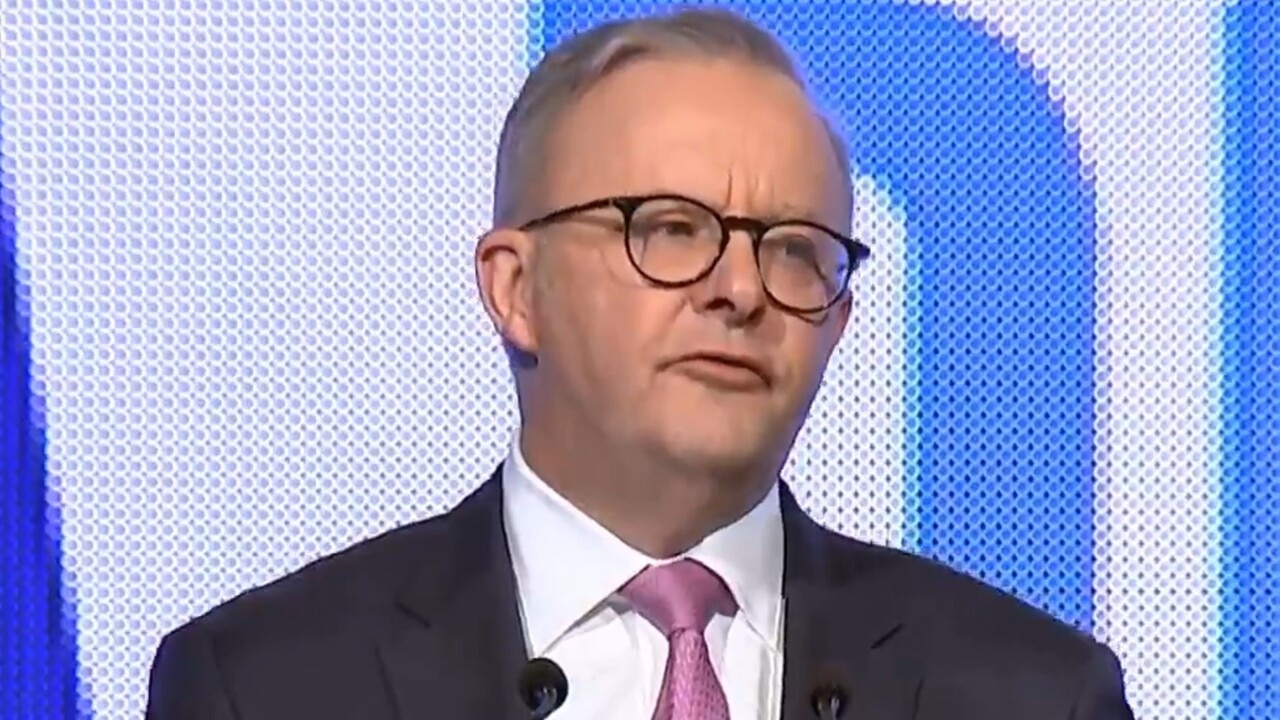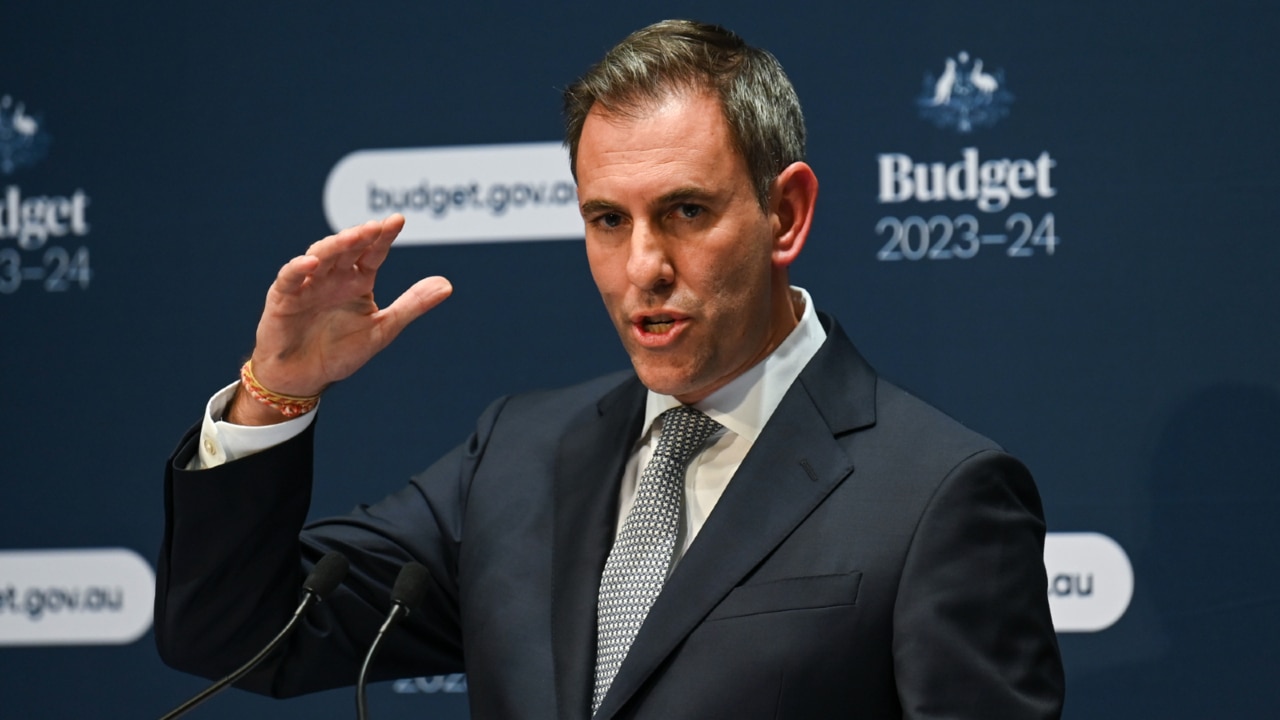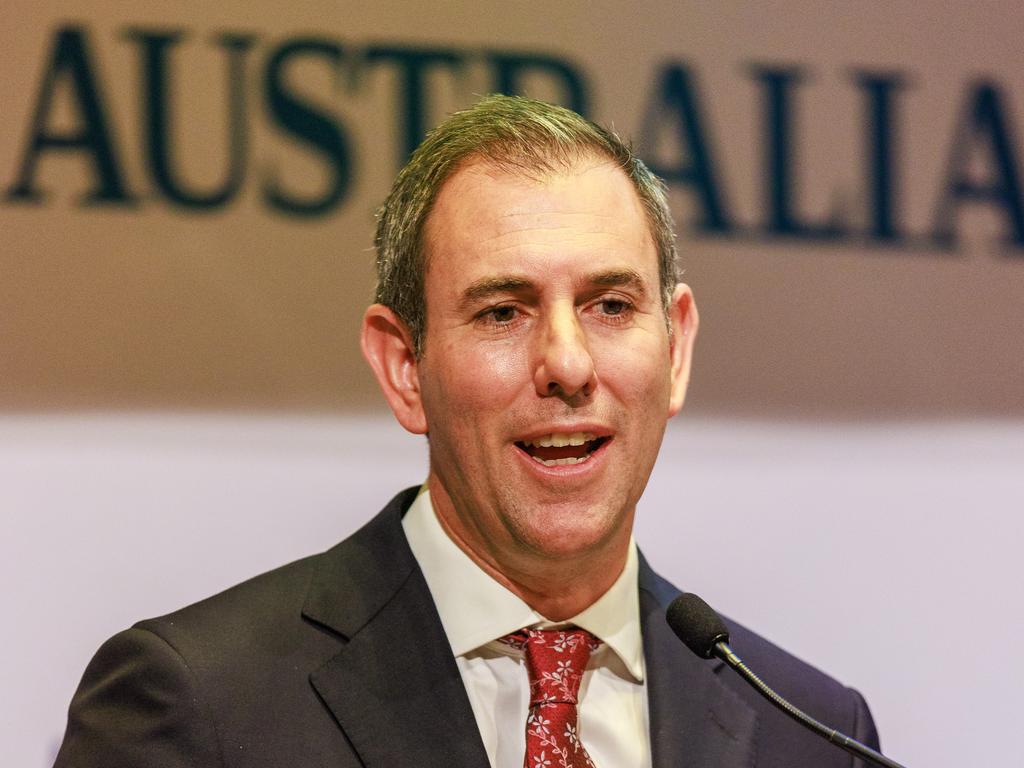Anthony Albanese’s growing pains to lift productivity amid cost of living crisis
Anthony Albanese says spending in Labor’s first two budgets was an investment in future economic capacity, rather than the blatant handouts of the previous government.

Anthony Albanese has declared his growth-enabling reforms will vault Australia up the global value chain by boosting self-reliance and safeguarding it against future instability in a turbulent world, while lifting the nation’s woeful productivity performance.
Before travelling to China this weekend to meet President Xi Jinping, the first national leader to visit our largest trading partner in seven years, the Prime Minister declared “the patient, calibrated and deliberate approach we have taken to stabilising our relationship” will see Australia derive huge dividends from Labor’s interventionist clean-energy push.
“Our nation is no longer at the mercy of the tyranny of distance, we now hold the opportunity of proximity,” Mr Albanese told the lunch at The Australian-Melbourne Institute Economic and Social Outlook Conference on Thursday.
“And our government wants to make this count.”
A key driver of policy renovation and a more aggressive industrial policy will be a revamped Productivity Commission, which the government will reorient to be more agile and attuned to opportunities for sustained growth in living standards.

Amid a cost-of-living crisis, and having banked a $22bn budget surplus last financial year, Mr Albanese said spending in Labor’s first two budgets was an investment in economic capacity, rather than the blatant handouts of the previous government.
“Spraying money around in search of a headline, as our predecessors so often did, would make the problem of inflation worse, not better,” the Prime Minister said, in the wake of a $6bn improvement to the budget’s bottom line in the first three months of the new financial year. “That’s why through the past year we have focused on providing responsible cost-of-living relief that delivers an economic dividend.
“Taking pressure off families without putting pressure on inflation. Helping people through adversity in a way that builds for our future productivity. This is what ties together the $23bn in cost-of-living relief our government is delivering.”
Jim Chalmers will issue within days the first set of riding instructions for the Productivity Commission to raise its influence, refresh its mission and sharpen its focus on the most pressing economic reform issues, including the slide in material living standards.
On Thursday, the Treasurer said the revamp was in line with the government’s reforms to the Reserve Bank and a drive for better evidence-based policy, especially in shaping the Albanese government’s clean-energy and social-opportunity agendas.
“We want more practical and relevant advice here as a priority so we can secure the productive and prosperous transformation of our economy,” Dr Chalmers told the Outlook conference.

The Treasurer announced he would publicly release the first “statement of expectations” in the commission’s 25-year history before Danielle Wood started as chair on November 13, including details of how the independent body will “play a bigger, more constructive role in organising our thinking when it comes to climate and energy policy”.
“This statement is based on the best part of a year of consultation, collaboration and deliberation,” he said of Treasury’s engagement with business, academics and industry groups.
“It will make clear that guiding our country towards a successful net-zero transformation will be one of the key focus areas for a revamped and renewed Productivity Commission. More practical and relevant advice will complement that of other key institutions like the Climate Change Authority, to ensure we realise the economic potential presented by the net-zero transition.”

With the nation’s growth in per capita gross domestic product falling to 1.1 per cent a year over the past 13 years, less than half its rate from the previous two decades, living standards are under enormous pressure, which experts believe is due to a slide in investment, lack of innovation and a loss of dynamism. In what he described as a provocation, lead partner at Deloitte Access Economics Pradeep Philip told the conference “the things that drove growth and productivity over the last 80 years are petering out”.

“The hunt is on for new sources of productivity and growth to lift economies onto a new and higher wave of economic growth,” Dr Philip said in a session about achieving full employment and low inflation.
“But one where growth and distribution have to be countenanced simultaneously. This leads to my second provocation: that we are in a period of structural, not incremental change.
“And when you take these two provocations together, the landscape we see before us is one characterised by the tryptic of uncertainty, volatility and fragility.”
Amid an “arc of disruption” Dr Philip said dynamism in economies – their ability to renovate, innovate and renew – was the key to facing a confluence of megatrends, and involved as much a shift in culture as much as it was about investment.
“If you want a dynamic economy that evolves, then openness, inventiveness, and competition are the crucial ingredients,” he said. “A small open economy must push for globalisation and openness of trade; embrace skilled migration; and ensure its domestic economy is competitive and invested in skills and research to remain at the knowledge frontier.
“Even being a follower is neither cheap nor easy. The burden of enhancing the productivity and innovative capacity of our economy does not rest solely on the shoulders of policymakers and bureaucrats.
“The private sector must play its part too, and be willing to lean into the uncertainty, realising there is no value-creation without value destruction.
“This is, of course, deeply antithetical to many Australian firms, which are defined by a cultural conservatism that prioritises growing market share in safe and predictable industries in order to return a steady stream of dividends to shareholders.”

Dr Philip said “the price of dithering and obfuscation is now playing out in terms of declining standards of living, perilously low rates of investment and innovation, and productivity is in freefall. Discontent and economic failure is the end game if we don’t shift gears soon. It’s time to lift our horizons, rethink our reform architecture, and hasten at speed into shaping the arc of disruption that is upon us. This is an economic choice we can make, in our favour.”
In a session on the foundations for economic growth and productivity, the commission’s Stephen King said Australia was not alone in the slide in economic performance.
In looking for solutions to raise our productivity, Dr King said there was “no single, simple answer” and urged policymakers to conduct trials before policies were bedded down.
After visiting US President Joe Biden last week, Mr Albanese declared “what happens in the world, affects us here in Australia – we cannot isolate ourselves from the challenges and uncertainties we see around us. What we can do, what we must do, is invest in our nation’s capacity to meet them.”








To join the conversation, please log in. Don't have an account? Register
Join the conversation, you are commenting as Logout